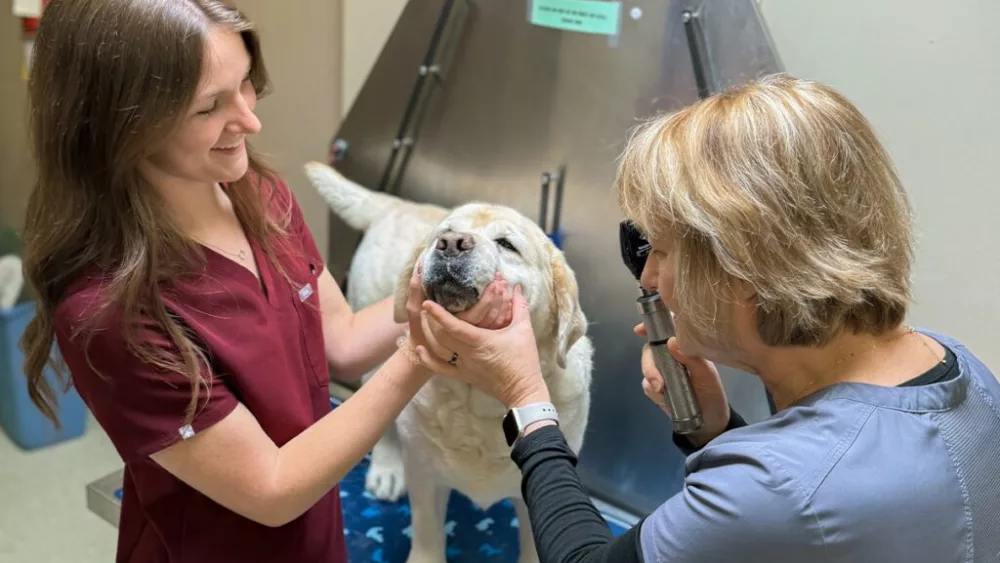Pullman, WA- A $1.8 million grant from the National Institutes of Health will help Washington State University researchers determine if new drugs used to treat COVID-19 may be linked to hearing loss.
There are no reports of COVID-19 medications causing hearing loss, but with more than 900 new drugs to treat the virus available or in clinical trials, side effects can occur.
“We already know some antibiotics and chemotherapy drugs can cause hearing loss. What we don’t know is what other medications are out there that can cause mild to moderate hearing loss,” said Allison Coffin, a neuroscientist at WSU Vancouver.
Coffin, who has specialized in medication-induced hearing loss research for 15 years, said for those who take a drug over a long period of time or may have a hearing impairment, it may be difficult to notice if a drug is affecting hearing.
Inside her lab, studying larval zebrafish, it’s much easier to tell.
Like most fish, zebrafish have hearing cells on the outside of their bodies that are similar to human hearing cells.
By mixing medications used to treat COVID-19 with water-filled dishes holding eyelash-sized zebrafish, Coffin can determine if hearing cells or the synapse, a connection from the cell to the nerve connected to the brain, are damaged or dead.
To do so, Coffin and her research team use dye that glows in fluorescent light to track where certain drugs move inside the fish, and in doing so, which drugs are able to pass through the tiny channels and pores of the eardrum and are more likely to cause damage.
“If you combine some antibiotics with red fluorescent dye, we’ve found hearing cells on the outside of the fish will glow red,” Coffin said. “A big part of it seems to be hearing cells just let in damaging drugs.”
To narrow the scope of the project, Coffin and her collaborators from WSU and Portland-based Rewire Neuro Inc., a WSU spinout company, are using a machine learning model to determine which drugs have a similar chemical makeup of others linked to hearing loss.

Coffin and her team plan to start testing with those drugs.
Other collaborators include researchers from Creighton University, a medicinal chemist from Research Triangle International, a statistician at Ursinus College, and clinicians from Providence Medical Center/PeaceHealth in Spokane.
Coffin noted there is a difference between COVID-19 medication and vaccinations, as medications are used to treat ailments and vaccinations are meant to prevent them from happening. COVID-19 vaccinations will not be included in the testing.
“I don’t want to scare people from taking the medications prescribed by their doctors or avoiding proven vaccines, which aren’t included in this research,” Coffin said. “This research is specifically about understanding COVID-19 drugs and the mechanisms of hearing loss.”




